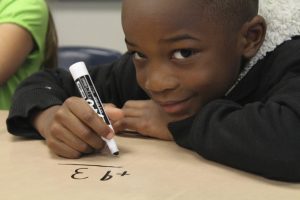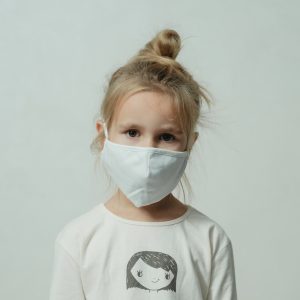Does Your Child Struggle With Math? Dyscalculia Could Be the Reason. [downloadable]
 Dyscalculia (dis-kal-KYOO-lee-uh) is not as well known as dyslexia, but both are learning disabilities. Read more ›
Dyscalculia (dis-kal-KYOO-lee-uh) is not as well known as dyslexia, but both are learning disabilities. Read more ›
 Dyscalculia (dis-kal-KYOO-lee-uh) is not as well known as dyslexia, but both are learning disabilities. Read more ›
Dyscalculia (dis-kal-KYOO-lee-uh) is not as well known as dyslexia, but both are learning disabilities. Read more ›
 A good kindergarten experience sets kids up for success in school and into adulthood. Students in smaller kindergarten classes are more likely to go to college than students from larger classes. And by age 27, students who had more experienced kindergarten teachers were earning more money than their peers who had less-experienced teachers in kindergarten. Read more ›
A good kindergarten experience sets kids up for success in school and into adulthood. Students in smaller kindergarten classes are more likely to go to college than students from larger classes. And by age 27, students who had more experienced kindergarten teachers were earning more money than their peers who had less-experienced teachers in kindergarten. Read more ›
 As pressure to raise scores on standardized tests has trickled down to the lower grades, kindergarten and even pre-kindergarten classrooms have focused more on academic skills. But debating whether a kindergarten or preschool classroom should be play-based or academic is the wrong question, experts say. Read more ›
As pressure to raise scores on standardized tests has trickled down to the lower grades, kindergarten and even pre-kindergarten classrooms have focused more on academic skills. But debating whether a kindergarten or preschool classroom should be play-based or academic is the wrong question, experts say. Read more ›
 Nonverbal learning disorder (NVLD), also known as nonverbal learning disability, is a neurological condition which typically emerges during childhood but can persist through adulthood. It is marked by one or more of a set of cognitive, and sometimes social, difficulties experienced by children of otherwise average or superior intelligence, such as visual-spatial struggles and motor-skill deficits. Some people diagnosed with NVLD also have trouble comprehending nonverbal information such as body language and facial expressions. Read more ›
Nonverbal learning disorder (NVLD), also known as nonverbal learning disability, is a neurological condition which typically emerges during childhood but can persist through adulthood. It is marked by one or more of a set of cognitive, and sometimes social, difficulties experienced by children of otherwise average or superior intelligence, such as visual-spatial struggles and motor-skill deficits. Some people diagnosed with NVLD also have trouble comprehending nonverbal information such as body language and facial expressions. Read more ›
Emily Kircher-Morris, M.A., M.Ed., LPC, inspired by her own experiences as a neurodivergent person, is dedicated to destigmatizing neurodiversity and supporting neurodivergent people of all ages. Emily hosts The Neurodiversity Podcast, which explores the psychological, educational, and social needs for enriching the lives of neurodivergent people. Read more ›
Typically, about 1 in 6 children experience a developmental delay. But children born during the pandemic, a 2022 study has found, have nearly twice the risk of developmental delays in communication and social development compared to babies born prior to the pandemic. Read more ›
 Navigating the special education landscape can be daunting for parents trying to get the best education for their children. Here’s a guide to Individualized Education Programs, 504 plans and other aspects of special education. Read more ›
Navigating the special education landscape can be daunting for parents trying to get the best education for their children. Here’s a guide to Individualized Education Programs, 504 plans and other aspects of special education. Read more ›
 These mental health primers, developed by the Coalition for Psychology in Schools and Education, provide information for classroom teachers to help them identify behaviors in the classroom that are symptomatic of mental health and other psychological issues, with the goal of directing teachers to appropriate resources for the students. Read more ›
These mental health primers, developed by the Coalition for Psychology in Schools and Education, provide information for classroom teachers to help them identify behaviors in the classroom that are symptomatic of mental health and other psychological issues, with the goal of directing teachers to appropriate resources for the students. Read more ›
 Some parents express worry that masks might interfere with children’s ability to learn or to socialize. Other parents fear that unmasking will lead to more COVID-19 cases.
Some parents express worry that masks might interfere with children’s ability to learn or to socialize. Other parents fear that unmasking will lead to more COVID-19 cases.
Amid the debate, a small but growing body of research is offering hints that masks do not have a significant impact on speech or social skills. Read more ›

 We receive lots of questions from parents about evaluations: Does my child need one? Or should we just start treatment? An evaluation by a psychologist or a multidisciplinary team can be a valuable tool in understanding your child’s strengths and weaknesses and provide a roadmap for next steps. It can reveal whether what seems like distraction, laziness or reluctance could actually be a sign of mental health or learning challenges. Read more ›
We receive lots of questions from parents about evaluations: Does my child need one? Or should we just start treatment? An evaluation by a psychologist or a multidisciplinary team can be a valuable tool in understanding your child’s strengths and weaknesses and provide a roadmap for next steps. It can reveal whether what seems like distraction, laziness or reluctance could actually be a sign of mental health or learning challenges. Read more ›